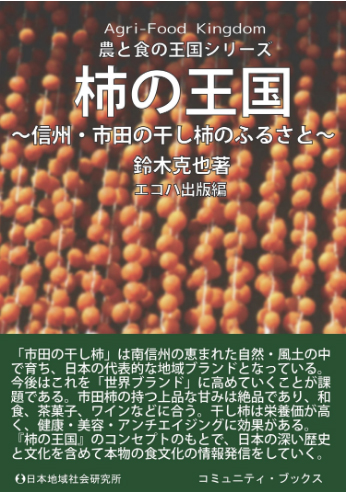Starting Point
Last week I saw Kore-eda's After Life for the second time in 20 years, and I think I loved it even more on this viewing. I was happy every minute it was on the screen, and after leaving I felt transported, transformed, and newly awakened to my life. In fact, I felt acutely awakened to the lives we all lead. A week and a half later, I'm still under the spell of that movie!
The premise is simple and yet so rich. After people die, they arrive at a way station and have three days to choose a memory from their lives. That will become the only thing they recall as they move into the true afterlife. All else will be erased from their minds.
Watching the characters reflect on their experiences, I realized that as one lives, life seems fairly continuous, an ongoing flow of events. But when one looks back on it all, particularly after one has died, the moments seem more distinct and the store of memories feels finite.
A Japanese Wikipedia article about the film looks back in a different way. I'm referring to this sentence about the director:
ドキュメンタリー出身の作風を生かし、出演者に簡単な状況設定のみを与え、即興で作られたシーンが多い。
He got his start in documentaries. Making good use of that style, he had many scenes in which he only established a situation and then had the actors improvise.
出身 (しゅっしん: person's origin); 作風 (さくふう: artistic style); 生かす (いかす: to put to good use); 出演者 (しゅつえんしゃ: actor); 簡単 (かんたん: simple); 状況 (じょうきょう: situation); 設定 (せってい: establishing, setting); のみ (only); 与える (あたえる: to give); 即興 (そっきょう: improvisation); 作る (つくる: to make, shown here in the past tense of its passive voice); 多い (おおい: many)
Impossible as it seems, some of the people in that movie weren't even actors. They were just regular people talking about their lives in an unscripted way.
Anyway, two things about the beginning of the Japanese sentence jump out at me.
First, 生 may well be the most multifaceted and underrated kanji out there! How many yomi does it have? Have I ever seen 生かす (いかす: to put to good use), and if not, why not? It's a terrific word, and I plan to put it to good use!
Second, check out ドキュメンタリー出身. We normally see 出身 as "hometown," but here it represents "origin," which is quite atypical.
Actually, the kanji in 出身 suggest that a hometown is a "launching point," the place from which your body (身) goes out (出) into the world.
Compare that with a term for "hometown" that popped up in the new essay 1946 on 柿 (persimmon), which includes this book cover:
The title starts with 柿 (かき: persimmon) and then showcases 干し柿 (ほしがき: dried persimmon):
「柿の王国 信州・市田の干し柿のふるさと」
Persimmon Kingdom: Shinshu, the Hometown of Ichida Dried Persimmons
王国 (おうこく: kingdom); 信州 (しんしゅう: old province name, corresponding to what is now Nagano Prefecture); 市田 (いちだ: a type of persimmon); ふるさと (故郷: hometown)
Let's take a closer look at the last hiragana word, a melodic combination of kun readings:
ふるさと corresponds to 故郷 or 古里 or 故里
In every case, the first kanji means "old, former," and the second means "village, hometown, parents' home." Together, the two kanji mean "hometown; birthplace; native place; one's old home."
Most people are familiar only with 故郷. We can also read that compound as こきょう, but then we lose the kun-yomi music!
All of this makes me wonder about 出身 versus ふるさと. Breen defines the former as "person's origin (e.g., city, country, parentage, school)," and his sample sentences for 出身 are quite factual:
私は京都の出身です。
I'm from Kyoto.
彼女は神戸大学の出身です。
She graduated from Kobe University.
Several sample sentences for ふるさと are similarly straightforward, essentially locating a place of origin on a map:
私の故郷は北海道にあります。
My hometown is in the center of Hokkaido.
私の故郷はニューヨークの南10マイルのところにある。
My hometown lies 10 miles south of New York.
But other sentences teem with nostalgia and a sense of what has been lost to time:
この夏に故郷を訪問したとき、10年前とは違うことがわかった。
When I visited my hometown this summer, I found the city different from what it had been 10 years ago.
彼は再び故郷には帰らぬ運命だった。
He was never to return to his hometown.
今日は朝から妙に故郷の事ばかり思い出す。
All day, I have been strangely preoccupied with thoughts of my hometown.
彼は思いを故郷に向けていた。
He turned his thoughts toward home.
オールディーズを聞くと故郷を思い出します。
Listening to oldies reminds me of my hometown.
Well, it makes sense; 故 is all about the past. In fact, Henshall (in his first edition) says that the right side of that character means "coerce" and that the 古 means "old," indicating the past. Together, these two sides mean "to make something a thing of the past." He comments, "This led on the one hand to 'past/deceased,' and on the other to the idea of 'causality/reason,'" as when past events influence the present or future.
Well, when does the past not influence the present or future? I'm still alive, so from my vantage point, it all seems fabulously connected!
Here's a sneak preview of the newest essay:
Catch you back here next time!
❖❖❖
Did you like this post? Express your love by supporting Joy o' Kanji on Patreon:




Comments